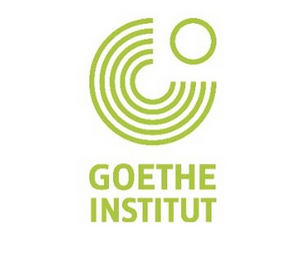Goethe-Institut Boston to Host Two-Day Symposium on Diversity and Cultural Inclusion in the New Music Canon
Admission is free to all events.

In conjunction with Ensemble Recherche (Freiburg) and Castle of our Skins (Boston), Goethe-Institut Boston will bring together local and international creatives actively working to diversify new music repertoire in Boston, Germany and beyond. Through a mix of virtual and in-person panels, brainstorming sessions and performances, the symposium aims to inspire cross-cultural action and coalition, building around the topic of diversity in new classical music.
Free admission to all events
For more information including bios, please visit the Symposium Website
Opening Panel Discussion
Expanding Cultural Inclusivity in New Music
with perspectives from the Global South, the US and Europe
Panelists: Bongani Ndondana-Breen (composer, South-Africa); Jon Silpayamanant (composer, US/Thailand); Harald Kisiedu (musicologist, Germany)
Monday, October 10, 10:00-11:30 am online on Zoom
More info and to register: https://www.goethe.de/ins/us/en/sta/bos/ver.cfm?event_id=24208295
Diversifying New Music Repertoire
A Conversation with Ensemble Recherche (Freiburg), Castle of our Skins (Boston) and ICE (NY)
Participants: George E. Lewis, Ashleigh Gordon, Bongani Ndondana-Breen, Clemens K. Thomas
Tuesday, October 11, 11:00 am-1:30 pm
online on Zoom
More info and to register: https://www.goethe.de/ins/us/en/sta/bos/ver.cfm?event_id=24214214
Concert
Ensemble Recherche performs five World Premieres from its "A Postcolonial Recherche" project
Tuesday, October 11, 8:00 pm
Goethe-Institut Boston, 170 Beacon Street, Boston MA
More info: https://www.goethe.de/ins/us/en/sta/bos/ver.cfm?event_id=24198776
Free admission
Think Tank
Boston-based musicians and members of Ensemble Recherche brainstorm new collaborative ideas (by invitation or application only)
Facilitated by Aliana de la Guardia (singer and founder of Guerrilla Opera)
Monday, October 10, 6:30-9:30 pm
Goethe-Institut Boston
Virtual Showcase
A curated selection of performances that demonstrate diversification along ethnic and/or cultural lines in the new music canon online at www.goethe.de/boston
Presented in collaboration with
The Goethe-Institut has long promoted critical discourse on the effects of colonialism and ideas about what a postcolonial world might look like. When applied to the Art and its institutions, important issues arise such as the need to determine the future of cultural objects from the global south in German museums, to reign in the power (and arrogance) of cultural institutions of European and North American, and to recognize the dominating tendencies of the western cultures when it comes to worldwide dissemination of cultural production.
In the field of music there are just as many questions that arise. For example, how to decolonize music, in particular when considering historical and contemporary classical music traditions of Central Europe, where its dominance over other regions and genres has too often been mistaken for being aesthetically superior. What must change so that composers and performers from non-western backgrounds can be accepted by and contribute freely to the current international classical music scene on a greater scale? How can the challenges that artists with different aesthetic practices encounter be met more constructively?
About the collaborating organizations:
The Goethe-Institut is the cultural institute of the Federal Republic of Germany and is dedicated to promoting international cultural dialogue and exchange. The Goethe-Institut Boston was the first Goethe-Institut in the United States and founded in 1967. It is located in the historic Back Bay/Beacon Hill area and provides services for the six New England states of Massachusetts, Rhode Island, Connecticut, Vermont, New Hampshire and Maine. The Goethe-Institut Boston is the contact point for anyone interested in German culture and for those who want to study or teach German. The Goethe-Institut Boston has been promoting an ongoing dialogue and exchange between American and German artists and experts for 55 years, which helps to present German culture abroad and shape a current understanding of Germany today.
The members of the ensemble recherche have been dedicated to the new and unknown since 1985. The Freiburg-based ensemble has shaped contemporary music and written musical history during this period of more than three decades - with in excess of 600 premiers and more than 50 CD recordings. The eight musicians, all internationally known soloists in the field of contemporary music, combine immense pleasure in experimentation with enthusiasm for intensive consideration of the present time. The eight soloists place their enormous musicality and their individual personalities at the service of the collective so that they can research the musical present together, as an ensemble. The considerable energy and personal commitment of each and every members explains why the independent ensemble has been recognised as one of the most important players of contemporary music for more than three decades.
Castle of our Skins is a Black arts institution dedicated to fostering cultural curiosity and celebrating Black artistry through music. In classrooms, concert halls, and beyond, Castle of our Skins invites Black heritage and culture exploration, spotlighting both unsung and celebrated figures of past and present.
Comments

Videos

